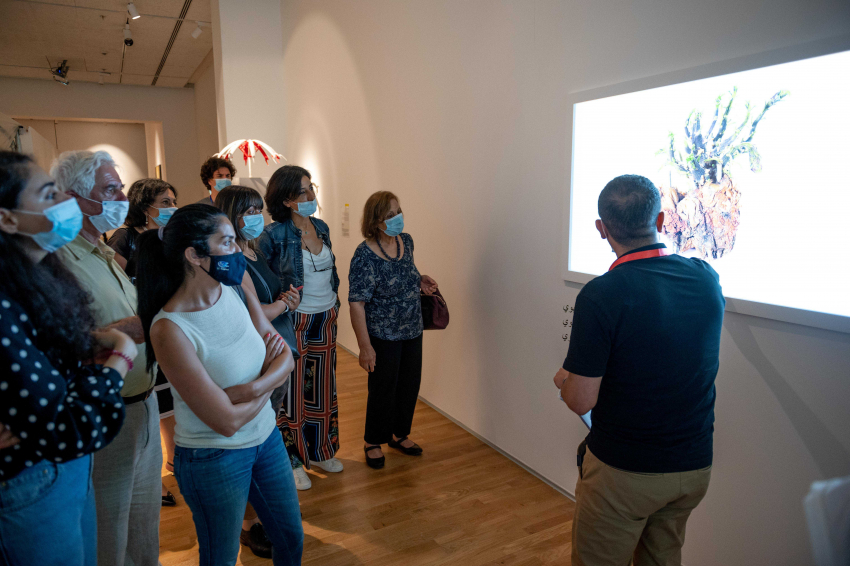
On Tuesday, the A.M. Qattan Foundation launched an exhibition entitled Weed Control featuring 33 artists at the Foundation’s building in al-Tireh/Ramallah.
The exhibition explores the policies implemented by the British Mandate in Palestine to curb crop weeds and control their growth and propagation.
Thirty-three artists were given thirty-three seeds based on illustrations of the most common weeds in Palestine, each artist was asked to examine the botanical anatomy of their given plant, and turn the seed into an artwork.
This exhibition is a culmination of a year-long research which also resulted in a book bearing the title of exhibition featuring selected texts by: Iman Mirsal, Adania Shibli, Raja Shehadeh, Aisha Odeh, Tania Tamari Naser, Hussein Barghouthi, Zakaria Mohammed, Ayman Dardouneh, Tawfiq Kanaan and Rima Hamami. In addition to texts and artworks by the 33 artists including: Alexandra Sophia Handal, Inas Halabi, Bashar Hroub, Tayseer Barakat, Jumana Emil Abboud, Jumana Manna, Jawad Malhi, Hanna Qupty, Khaled Jarrar, Dima Hourani, Dima Srouji, Raafat Assad, Randa Maddah, Ronin Zein, Sliman Mansour, Shada Safadi, Asem Nasser, Amer Shomali, Ayed Arafeh, Abdulrahman Joulani, Oraib Toukan, Alaa Abu Asad, Ola Zeitoun, Essa Ghreib, Vera Tamari, Majd Abdulhamid, Mohammed Abu Sal, Manal Mahamid, Mahdi Baraghithi, Mirna Bamieh, Nasser Soumi, Nabil Anani and Haitham Haddad.
“This exhibition explores the transition in the perception of Palestinian flora and its historical ecological habitus in the lives of Palestinian, particularly with the emergence of early agro-industries during the British Mandate, and the birth of intensive crop farming. The long history of permaculture agro-practices went through an upheaval in which Palestinian flora was no longer perceived from a utilitarian, economical or agronomical stance. The medicinal, mythical, folkloric/household usage and ecological (propagation, pest repellence, nutritional, etc.) of plants was rendered inapt with the emergence of new industrial values based on economic benefit” said exhibition curator Yazid Anani. ‘The Western scientific taxonomy of plants has suddenly classified many of these domestic species as harmful weeds, to which they introduced pesticides and other new methods of control, alongside awareness campaigns and publications. The repercussions of this historical turning point have echoed into the present. Knowledge of plants as part of the identity of the geography and people of Palestine has been limited to a utilitarian thesis” he added.
The Weed Control exhibition will be on view until 1 December 2020. It is open to visitors daily from 11am until 7pm, except Friday and Sunday. A series of events will be organised alongside the exhibition for all age groups, which will be announced later.
